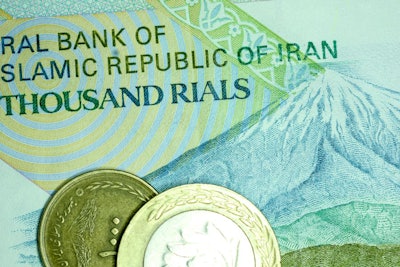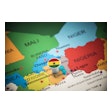
Government instead encourages export of non-oil products
Iran’s government has ended the payment of subsidies for the import of animal feed premix ingredients and has instead called on importers to meet their foreign currency requirements from the export earnings of non-oil products, according to a report.
“Importers of corn, barley and soybean meal can receive subsidized U.S. dollar at the rate of 42,000 rials,” Majid Movafeq Qadirly, chairman of Iran Feed Industry Association, said in the report. “The government is giving the subsidies in driblets, though. Importers are taking risks and they don’t see a bright future.”
He said animal feed prices in the Iranian market are twice as much as regulated prices.
Iran’s government introduced rules banning the import of non-essential goods, especially those produced inside the country, after the country’s national currency lost value in 2017.
According to State Livestock Affairs Logistics, a company associated with Iran’s agriculture ministry, more than 1.8 million tons of raw materials used for animal feed entered the country through ports for distribution among producers from March 20 to May 20.
Import data
A report from the Animal and Poultry Feed Importers Association said 866,570 tons of animal feed worth US$253 million were imported into the country from March 20 to April 19, showing a 6% and 7% decrease in weight and value, respectively, compared with the similar period of last year.
More than 166,620 tons of barley worth US$41.4 million were imported over the period – a 14% and 21% year-on-year decline, respectively.
About 430,220 tons of corn worth US$104.62 million were imported, a 14% and 15% decline, respectively, year over year.
A total of 269,730 tons of oilcake worth $106.99 million were imported during the same period, an increase of 18% and 9%, respectively, compared with the corresponding period of last year.
Iran’s economy has recently been affected by the novel coronavirus (COVID-19) pandemic, which hit the country hard beginning in February.










